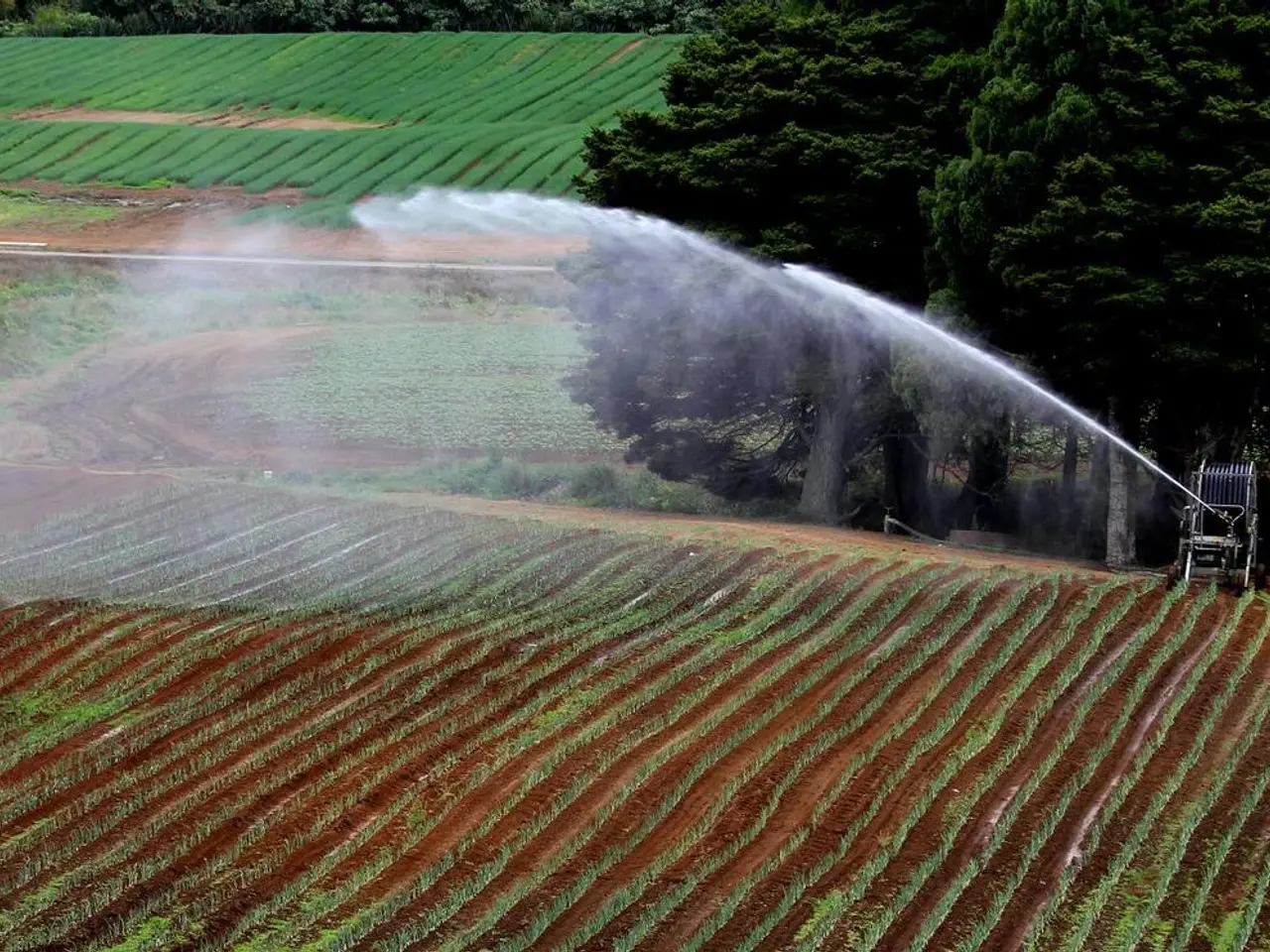"Pakistan initiates 'Agri Stack' digitalization program for streamlining the agricultural sector"
Pakistan is embarking on a digital transformation of its agricultural sector with the introduction of the National Agri Stack. This initiative aims to create a unified digital ID and service platform for farmers across the country, integrating data on farmer identities, land ownership, crops, and related information to enable direct delivery of agricultural services.
The National Agri Stack, also known as PAKGROW, is a comprehensive digital infrastructure project. Its key features include digital identities for farmers, integration of land records, satellite-based crop monitoring, and market information on one platform, digital payment tools, secure data-sharing systems, and tools to facilitate targeted support and reduce leakages in subsidies and aid programs. The platform also provides direct links between farmers, banks, government agencies, and agri-businesses.
The benefits of the National Agri Stack are far-reaching. Farmers stand to gain easier and verified access to credit, subsidies, and insurance, improving financial inclusion, particularly for smallholders. Increased transparency and efficiency in government support programs reduce resource leakages. Data-driven insights help farmers manage crops better and respond to climate risks, improving overall agricultural productivity and resilience. The platform also boosts market access and connection to buyers, potentially raising farmer incomes.
Moreover, the National Agri Stack enhances food security by strengthening the agricultural sector's capacity and reducing vulnerabilities to shocks. By modernizing how farmers and the government interact, the Agri Stack aims to deliver targeted, efficient, and transparent resources and services, with broad economic and social benefits for farmers and the national economy alike.
The Agri Stack was announced by Federal IT Minister Shaza Fatima Khawaja at a stakeholder consultation in Islamabad. The development timeline for the Agri Stack pilot projects is 12-18 months. The initiative is being developed in collaboration with the Ministry of National Food Security and Research (MNFSR), the Land Information and Management System (LIMS), and the Special Investment Facilitation Council (SIFC). A steering committee co-chaired by MoITT and MNFSR, a technical working group on data and cybersecurity, and pilot projects have been endorsed for the development of the Agri Stack.
If implemented effectively, the Agri Stack could help Pakistan tackle its agricultural challenges by giving farmers verified digital identities, streamlining subsidy and credit delivery, and providing timely, data-driven advice on crop management. The Agri Stack could improve resilience against climate shocks and connect rural producers more directly to buyers. Ultimately, the Agri Stack could boost productivity, transparency, and rural incomes in the agricultural sector, which underpins both the economy and national food security.
- The Agri Stack, a technology-centric project, includes features like digital identities, satellite-based crop monitoring, and market information on a single platform, indicating a significant advancement in Pakistan's economy and agriculture sector's digital technology.
- As part of Pakistan's cultural shift towards digital transformation, the National Agri Stack, or PAKGROW, incorporates elements of art and culture, such as providing tools for targeted support to ensure equitable access to resources for all farmers, particularly smallholders.
- In addition to its impact on the digital economy, the National Agri Stack serves as a bridge between various sectors of society, including farmers, banks, government agencies, and agri-businesses, promoting a unified approach to agriculture, reflecting a broader aspect of national culture and unity.



